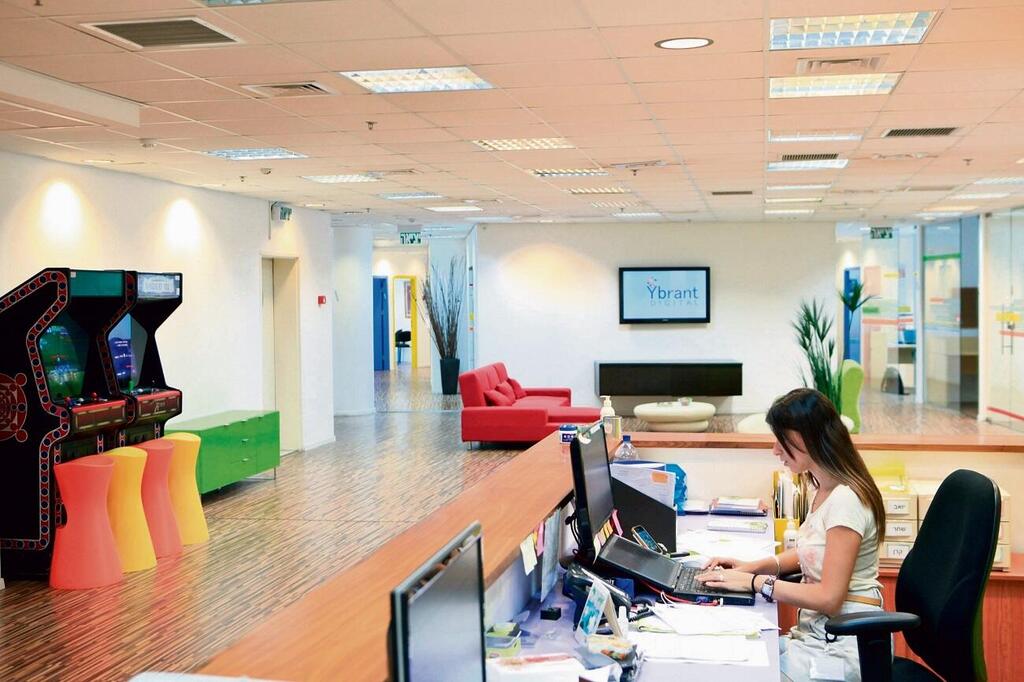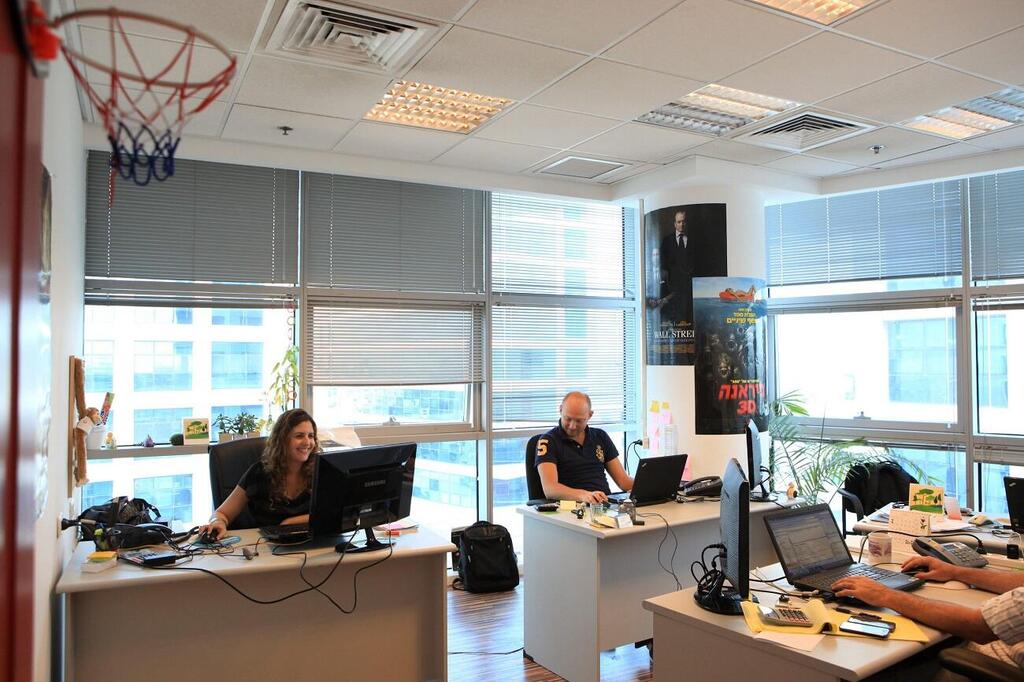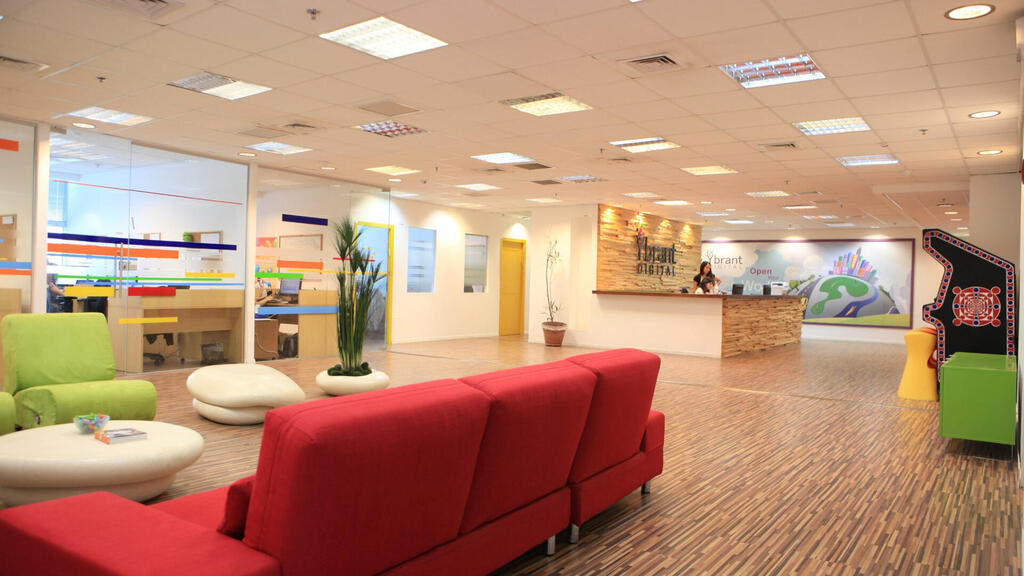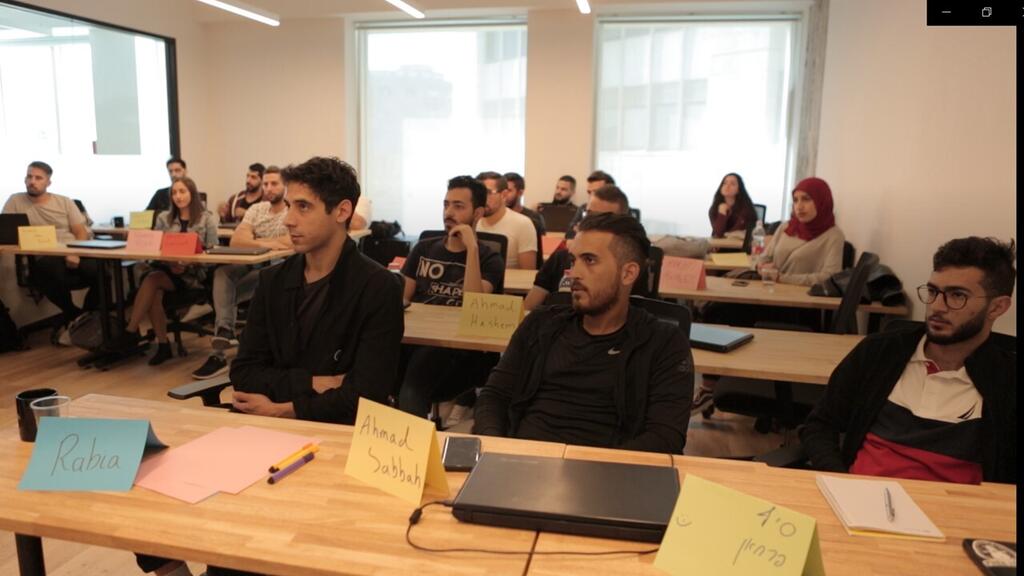Israel's prohibitive cost of living is challenging, especially for new immigrants, without a high-tech salary.
Angelo Leone arrived from Sicily to the most expensive city in the world with a love for Israel and a willingness to contribute to society.
7 View gallery


illustration of a person arriving in Israel at the Ben Gurion airport
(Photo: Shutterstock)
The 54-year-old professor moved to the Tel Aviv area six months ago and was hit with the reality of life outside of the high-paying high-tech sector.
Despite his academic background at the Palermo Medical School-Italy, he says he was only offered an associate professor position at Tel Aviv University without pay.
"Honestly, I was laughing," Leone, who also works as a consultant in London, says.
"Leave a job in Europe where I have more than 30,000 shekel ($8,977) in pay a month, to come to this country to work for free... I’m 54, have a family, a daughter at university. They rely on me. And you expect me to stay in this country working for free?"
Leone's story is an extreme example of the increasing disparity between Israel's high-tech industry and everyone else — over the past decade, the national average wage has increased by 34 percent while the average high-tech salary has skyrocketed by 54 percent, according to the Central Bureau of Statistics (CBS).
The gap between the average wage in high-tech versus the overall economy has risen to 29 percent within 10 years, CBS data shows, despite only around 11 percent of the Israeli workforce currently working in the high-tech industry.
The average monthly salary in Israel in the high-tech sector at of the end of November 2021 was more than double the amount of non-high-tech workers.
Tel Aviv is home to 2,750 startups and the Mediterranean coastal city is increasingly unaffordable for those not making high-tech wages, recently being ranked as the world's most expensive city by The Economist Intelligence Unit (EIU).
"This is a polarization of society, a distortion of the significance of the high-tech for Israel, and there are many CEOs who tell me the same thing," Shlomo Ben-Haim, CEO of software company JFrog, says in an interview with Ynet's sister publication, Calcalist, recently.
Ben-Haim's remarks were in relation to the amount of money poured into high-tech companies and the lavish spending that has been publicized.
Learning from success of high-tech sector
Canadian Israeli Corey Gil-Shuster, 51, is best known for his YouTube video series (with 255,000 subscribers) asking Israelis and Palestinians viewer-submitted questions.
However, as he explains during a phone interview from Jerusalem, where he was making a new video, the Ask Project is a side gig and, despite bringing a master's degree in conflict resolution studies to Israel, he has been struggling to make a living for years.
Now Gil-Shuster is program director of Tel Aviv University's conflict resolution and mediation program, but when he went to work at the university in 2014 on a contract after being paid more in Israel's high-tech sector, he could not believe how low the salary was given his qualifications.
"I remember thinking it must be a mistake. How can you pay a person with a master’s who is the director of an educational program at a university 7,800 shekels ($2,332)? So, I would end up getting 7,000 ($2,093) or 6,000 ($1,794) after taxes," Gil-Shuster said.
He said he looked around at other jobs not in the high-tech sector, and they paid the same.
"It is something we talk about a lot at the university — how we’re underpaid," Gil-Shuster says.
He praises Israel's high-tech sector as a model for other industries to emulate.
"In high-tech you are encouraged. You can work from home and things are easy going and if you need to leave it’s not a big deal," Gil-Shuster says.
"You are also expected to work long hours in high-tech but there is a lot of flexibility because it’s considered almost like a contract between worker and employer where each is getting something."
High-tech's importance to Israeli economy
Some estimates put the total percentage of people in the high-tech sector at around 23 percent if cleaners and caterers and event planners and others are included.
The industry punches well above its weight in terms of contributing to Israel's economy — high-tech companies produce 15 percent of Israel’s GDP and 43 percent of Israeli exports, according to the Bank of Israel.
Corinne Parenti, co-founder and director of the Jerusalem Institute for Market Studies, says that Israel should apply the same rules for high-tech to other industries.
"High-tech in Israel was given much more economic freedom than other sectors for the past 20 years and I believe that was one of the reasons the high-tech sector became much more developed," Parenti says.
"It was easier to open a business. There was less licensing, less bureaucracy and so on because it was a new technology and no one really knew how to regulate it."
Parenti warns against too much economic inequality as dangerous for society, but like Gil-Shuster, sees high-tech as the solution, not the problem.
"You have to be careful that you don’t let people fall along the way, because social cohesion is very important in the country."
Copying high-tech could unleash the full potential of other industries and of the Israeli people, according to Parenti.
"All the people who are capable, let them produce, let them be innovative — just go for it."
Choosing a different path
Daniel Hoz, 31, moved to Israel from Wisconsin about eight years ago. He worked for startups in Tel Aviv and now travels the country teaching English.
He said he understands the pay gap. However, he was happy to leave the high-tech world for a career with less money but more satisfaction.
There is another side to high-tech in Israel besides making a ton of money, according to Hoz, including the reality that many startups fail and high-tech workers experience burnout from long working hours.
A 2019 report from Startup Genome found that only one out of 12 startups succeed compared to a failure rate of nearly 92 percent.
"You can’t just work, work, work, work yourself to death. Nobody is really thinking, 'Ok, how are you really doing?' You’re keeping yourself at your high-paying job to your detriment and you are not giving yourself enough time to breathe," Hoz says.
"What good is a high salary if you are not really able to enjoy it?"
Hoz says that his career change is giving him a sort of fulfillment that he couldn't find in high-tech.
"I'd rather be doing something where I feel that I’m making a difference, like I actually have some sort of value," Hoz says.
"My value is not programming, coding or catching bugs. I can do all those things. That’s not my value. Too many people see their value as only that, instead of being able to branch out and be happy."
Reprinted with permission from i24NEWS







